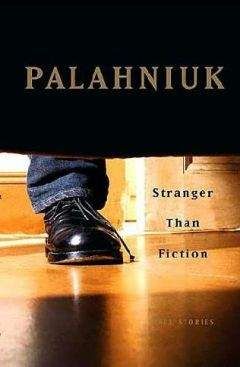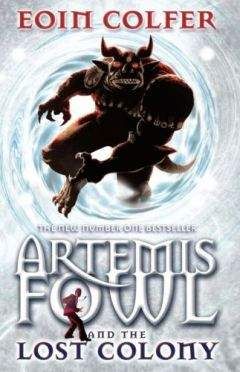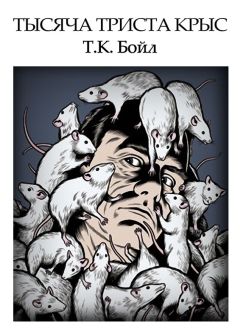Deerskin - Robin McKinley
Lissar lay as he had left her, sprawled, her limbs bent awkwardly, her face turned so that one cheek touched the torn bedding; she could feel something curling stickily down her cheek, and the taste of blood was in her mouth. She knew where she was, and who, and what had happened to her, because her eyes could not stop looking at Ash's motionless body; starlight and moonlight glanced off the shards of broken glass, as if she lay in state upon a bed of jewels.
Lissar went on breathing as she looked, because she did not know how to stop; but as time passed she felt the cold upon her body, feeling it like a soft inquisitive touch, like the feet of tiny animals. She did not recognize pain as present experience, for such a distinction was too subtle for her now; rather it was that pain was what there was left of her, as screaming had been her existence some little time before.
The creeping cold was a change, or a further refinement, upon her existence. But the cold was not content to pat at her skin and then grasp her feet, her hands, her belly and thighs and face. It wormed its way inside her; but she could resist it no more than she had been able to resist her father. Nor, she found, did she now want to, for the cold brought oblivion, the cessation of pain.
And then she saw its face, and it was not an animal at all, but Death, and then she welcomed it. Almost she made her split lips work to give it greeting; but her voice had fled away some time before.
I am dying, she thought, in the guttering of consciousness, I am dying, she thought, in the encroaching cold stillness. I am dying, and I am glad, for Ash is already dead, and it will all be over soon.
PART TWO
TEN
SHE OPENED HER EYES RELUCTANTLY. SHE HAD BEEN CALLED
BACK from a very long way away. The coming back had been hard, and she had not wanted to do it; the leaving had been bearable only because she believed she would not return. She could not imagine what thing could have such urgency as to convince her to return-to permit herself to return, to make the choice to return-to her body. She had left it sadly, wearily, with a knowledge of failure, a consciousness of having given up; but also with a relief that flared out so bright and marvelous that as she fled from the battered flesh that had been her home for seventeen years, it shone more and more, till it looked not like relief at all, but joy. Joy! She wondered if she had ever known joy; she could not remember it. But if she had not, how could she know to put a name to it?
It was then that she felt the need to return from the bright, weightless, untroubled place where she found herself; it was then she knew someone was calling her, calling her from the old unhappy place she had just left. She was astonished-and then angry-that there was enough of her still attached to her life to listen: immediately to listen and, worse, to respond. In that bodiless, peaceful place there was that in her that moved in reaction to that call: like the needle floating freely in its bath choosing to acknowledge north. Did any other bits of that needle resist the pull; were there bits that did not understand it, that were themselves bent and shaped as their stronger sisters aligned themselves, pointing strongly, single-mindedly, north?
She remembered where she had learned about joy: she had learned from her dog, Ash. She and Ash had loved each other, played with each other, grown up together, been each other's dearest companion. It had been Ash only who had not left her, there at the very end of things, at the end of the princess Lissla Lissar.
And, for her loyalty and love, Ash had been killed. Lissar had no need to go back, because Ash was dead; and no one else had the right to demand she return.
But Ash was not dead. Ash was crouched by her person's bed, shivering, whining a tiny, almost subvocal whine, very deep in her throat, licking her person's bloody, swollen face, licking her wounded, bleeding body, licking, licking, licking, anxiously, lovingly, desperately; she was saying, Come back, please come back, don't leave me, I love you, don't die, please don't die, come back, come back, come back.
Lissar opened her eyes. Ash flattened her ears, began licking Lissar's face so wildly and eagerly that it was hard to breathe through her ministrations; the dog was trembling now more than ever, and her tiny whine, readily audible now, had risen in pitch.
Lissar found herself slowly fitting back into the rest of her body, as if consciousness were a fluid, as if the pitcher had been upturned at the tiny spot behind her eyes, and was now flooding downward and outward, from her eyes to her ears and mouth, then down her throat; again she knew her heart beat in her breast, again she knew she breathed ... again she knew that she hurt.
She became aware of how her arms and legs lay, of how her body was twisted, one leg bent under her, her head painfully forced to one side. And then, suddenly, she began to shiver; the numbness rolled back, and she was cold, freezing cold, paralyzingly cold. She discovered that she could make at least one hand move to her will, and so she moved it; she unclenched the trembling fingers, unbent the elbow, flexed the shoulder ... reached up to touch Ash's face. Ash made a little "ow!"-not quite a bark, not quite a whimper-and climbed up on the ruined bed, and pressed herself again against her person.
Her warmth made Lissar colder yet, as the last fragments of numbness shook themselves loose and left her, finally and absolutely, stranded in her body again; and, worse, lying passively on her bed with Ash next to her, lying fearfully and hopelessly and futurelessly, reminding her of...
She felt consciousness begin to curl up around the edgesher edges-and retreat, leaving a thick, terrifying line of nothing dividing her mind from her body. She took a great gulp of air, hissing through her teeth, and the shock of the sudden necessary expansion of her lungs, and the pain this caused her, jolted her mind and body back together again, though they met ill, as if two badly prepared surfaces ground together, not matching but clashing. She felt nauseated and weaker than ever, and very much afraid of the nothingness's next assault. She had decided to live. If she could not think of certain things, she would not think of them. There were other things to think of, immediate things.
She touched Ash's back, and her hand came away bloody; but she could not tell if the blood was her own or her dog's. How badly were they hurt? She did not know. She feared to find out.
She lay quietly, another minute or two, trying to gather her strength despite the dictatorial cold that shook her. She listened to the sound of two creatures breathing, a sound that, with the feat of listening, she thought she had given up, just a little time ago. The sound interested her from this new perspective, as it never had before.
Lissar knew they dared not stay where they were. They dared not because ... no, they simply dared not. She need not remember why; the instant choking crush of panic told her as much as she needed to know. And then there was the wind; there was a cold wind-the door must be open, the outside door to the gardenand she was naked and bloody on a bed that no longer had any comfort to give.
Ash was still shivering as well, and had thrust her nose, in a trick she had had as a puppy, as far under Lissar's shoulder and arm as she could get it; she made little determined, rootling motions now, as if, if only she could quite disappear under that arm, everything would be all right again. She made tiny distressed noises as she dug her nose farther under.
Lissar's shoulder hurt where Ash was joggling her with her excavations; but then her other shoulder hurt, and her head hurt, and her breast hurt, and her belly hurt, and her. . . no, she would not think about it ... though that hurt worst of all. Slowly, slowly, slowly, she brought the elbow belonging to the shoulder Ash was not burrowing under to a place that enabled her to sit up halfway.
The door to the garden was open, as she had guessed from the wind; but beyond that the door in the garden wall was also open. She had never seen that door open before; how strange. She had thought it buried under generations of ivy that held it shut with thousands of tiny clinging fingers. If it was open, then the tower room was no longer safe, for someone could come straight through the garden door, and then to the tower door; anyone ... no, she would not think of it.
But there was something about the door she did need to think about, although it was hard ... so hard. . : her mind would not settle to the task, but kept trying to run away, threatening to escape into the strength-sapping nothingness again; what was it she needed to remember?
That she was cold. She could remember that. That the open door was letting cold, late-autumn air into her bedroom. She struggled to sit up all the way, her mind settling gingerly on this single, straightforward problem. Nothingness retreated.
There was a violent, white-hot pain through one hip that shot through her body and seemed to explode under her breastbone; and her headache-had she remembered the headache?-struck her heavily behind one eye. The combined pain made her dizzy; and then she began feeling her bruises. When she opened her mouth a little to gasp, her crusted lips cracked, and the metallic taste of blood was fresh again on her tongue; but she realized simultaneously that the rusty taste of old blood had been there already, since ... no. Her mind began to fragment again. But then she found an acceptable form for memory to take, that her mind agreed to coalesce around: since she had opened her eyes to Ash's licking her face.
She looked down at her dog. Ash's knobbly backbone was skinned and bleeding, like human knuckles, except that it was impossible to conceive what blow could have done ... no. This time her mind only quivered, expecting to be brought back, accepting that the thoughts that could not be looked at would be snatched away and hidden in time.
Ash had rusty brown contusions down one side of her ribcage, and a lump just over and beyond the last rib; and a dark, wet swollen place to one side of the back of her neck. Although she no longer had Lissar's shoulder to press herself under, her eyes were tightly shut, and she lay tensely, not at her graceful ease as she usually did.
Lissar looked down at herself and ... could not. Her mind bucked and bolted, and she almost lost the struggle; but she hung on. She raised her eyes to the door again.
If she shut it, she would be warmer. Could she stand up?
It wasn't easy. She had to think about things she hadn't thought about since she had learned to walk; she had to cling to support as fiercely as any two-year-old. But unlike the fortunate two-year-old, Lissar hurt all over, and her head spun. Her hip sent a jolt through her that made her gasp with every movement; she found that she could only hold on with one hand, and her eyes would not focus together. She found that she was better off if she closed one eye and looked only through the other; meanwhile her headache continued, bang, bang, bang, bang.
There was a tired moaning in the bed behind her. As she stood bent over a chair, panting, hoping to regain enough strength to stagger the rest of the way toward the door, Ash crept off the bed to join her. Lissar let one hand drop too quickly, and Ash flinched, although she did not move away from the touch.
Lissar looked toward the open door and the night sky beyond; she thought the night was old rather than young, and that thought aroused some feeble urgency in her; yet she could not understand what the urgency wished to tell her. She feared to investigate; nothingness curled close behind her; she could feel its teasing fingers against her back.
She stood, leaning on her chair with her good hand, the weaker one resting lightly on Ash's back, panting, shivering. She looked down at herself again, accidentally, because her head was too heavy and aching to hold up; but she was nonetheless shaken by another gust of panic; had Ash not been supporting her as well as the chair she might have fallen.
She shut her eyes, but the spinning was much worse in the dark. She raised her head, painfully, opened her eyes, closed one, opened it and closed the other. The world steadied slightly; she was once again conscious of her heartbeat, and it seemed to her surprisingly strong and steady. Timidly, sadly, a thought formed, a thought expecting to be banished instantly: If I put on some clothes, I wouldn't have to risk seeing myself.
She managed to hold the thought despite the immediate tumult in her mind (Don't look! Don't look! Don't even think about looking or not looking! Just do it!). She turned her head, feeling that her spine was grating against her skull. The wardrobe would require a detour on the way to the door. She couldn't do it. But clothes would also be ... warmer. And wasn't that why she'd decided to stand up in the first place?
She couldn't remember.
Clothing, she said to herself. I can remember that I want to go to the wardrobe and put clothes on. Half an era of the earth's history passed during that journey; but she arrived. She remembered, after staring at the wardrobe door for a moment, how to lift the latch; but then the door swung open, surprising her, striking her. She grabbed the edge of it, but could not hold it, and she slid slowly, frantically, to the floor.
She must have lost consciousness again, for again it was Ash's tongue that recalled her from wherever she had gone; but this time there had been no brightness, nothing, only that, nothing. She had decided to live, she was resigned to this side of the abyss-if she could stay here. The bright place was beyond the abyss, and she no longer had the strength to cross it; she was expending all her little remaining energy in clinging to her decision to stay alive. There was irony in the thought, but she was too confused for irony.
She regained her feet, made a grab with her good hand at one of the old wardrobe's shelves; it was an enormous, heavy piece of furniture, and stood solidly as she hung from it. After a moment she groped into the darkness of the shelves. Her hand found something thick and soft; she pulled it out. She was in luck; a heavy flannel petticoat unfolded itself, and a long-sleeved flannel under-shirt fell after it. She could not get her weak arm through the sleeve, but the shirt was cut generously, and there was room for it to hang next to her body. The petticoat was harder, for she could not tie the drawstrings, and the button went stiffly through the buttonhole; but she pushed it through at last. Sweat had broken out on her face, and stung her.




